Ministry of Power
22nd Foundation Day Celebration of Bureau of Energy Efficiency deliberates on Role of e-Mobility in Energy Transition and Potential of Indian Carbon Market in Decarbonization
Director General, BEE suggests Model Electric Vehicle Policy for accelerating nationwide adoption of EVs
“Indian Carbon Market can have a transformative impact on climate action”
प्रविष्टि तिथि:
02 MAR 2024 5:24PM by PIB Delhi
On the completion of 22 years of service to the nation, the Bureau of Energy Efficiency under the Ministry of Power, Government of India invited stakeholders from government and industry, at the main event held in New Delhi on March 1, 2024. The 22nd Foundation Day was themed on "Energy Transition through Electrification and Decarbonization in lndia", where the Union Power and New & Renewable Energy Minister Shri R. K. Singh commended BEE for its innovative and world-leading programmes. The Minister complimented BEE for its role in reducing the carbon load of the nation and said that it is primarily because of BEE that India could achieve its NDC target of reducing the emission intensity of the nation’s GDP 11 years ahead.
On the occasion, the Minister launched two of BEE’s Standards and Labelling Programs, one for Packaged Boilers and the other for Commercial Beverage Coolers, also known as Visi Cooler (or Beverage Cooler). He also released the inaugural edition of India EV Digest and the fifth edition of State Energy Efficiency Index. The celebration also featured an exhibition on Electric Mobility and Electric Cooking, to contribute to the aim of promoting electric vehicles on roads and efficient cooking in households. More details can be found here.
The 22nd Foundation Day celebration provided an opportunity to also engage in deliberations on two issues of topical significance for the BEE’s mission of reducing energy intensity of the Indian economy.
Accelerating Energy Transition in the Transport Sector through Electrification
In line with the government’s efforts towards energy transition, the first panel discussion explored ways and means of accelerating energy transition in the transport sector, through electric mobility. The panellists explored the policy and regulatory landscape which would best facilitate this transition in a manner which is affordable to the consumers.
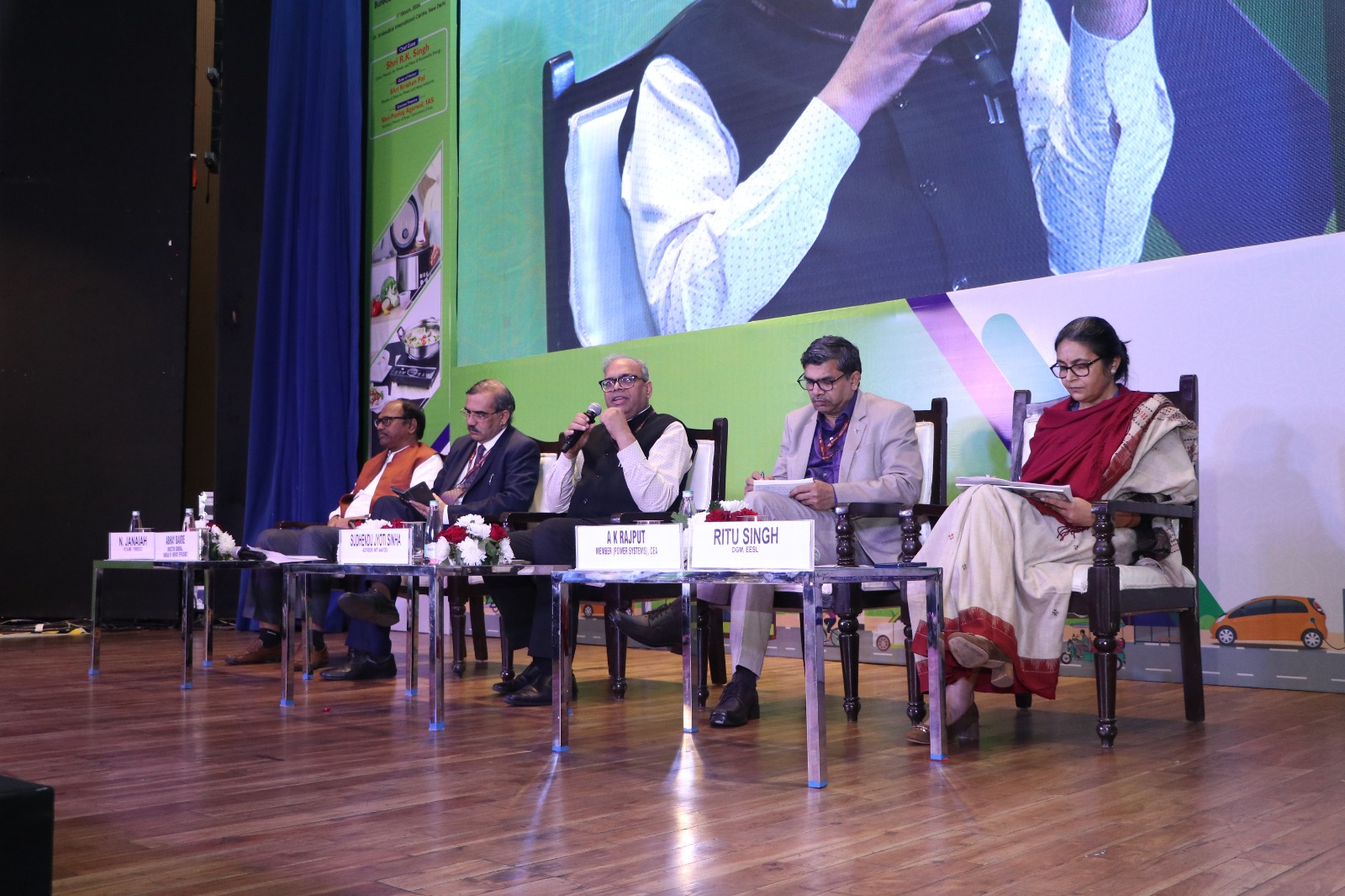
“33 out of 36 states have formulated state-specific EV policies”
Adviser, NITI Aayog, Shri Sudhendhu Jyoti Sinha set the tone for the discussion by highlighting significant progress in adoption of electric vehicles (EVs) across states. He informed that 33 out of 36 states have formulated state-specific EV policies. Stressing the need for collaborative efforts, he emphasized that the sustainability and success of EV policies depends on effective state-level implementation.
“Model EV Policy for Nationwide Adoption”
Speaking about the need to drive widespread adoption of EVs, Director General, BEE, Shri Abhay Bakre emphasized the pivotal role of conducive state-specific EV policies. He proposed a collaboration between BEE and NITI Aayog for the development of a Model EV policy for nationwide adoption. Moreover, recognizing the importance of affordable electricity, the DG called for financial incentives for EV users and policy support for manufacturers.
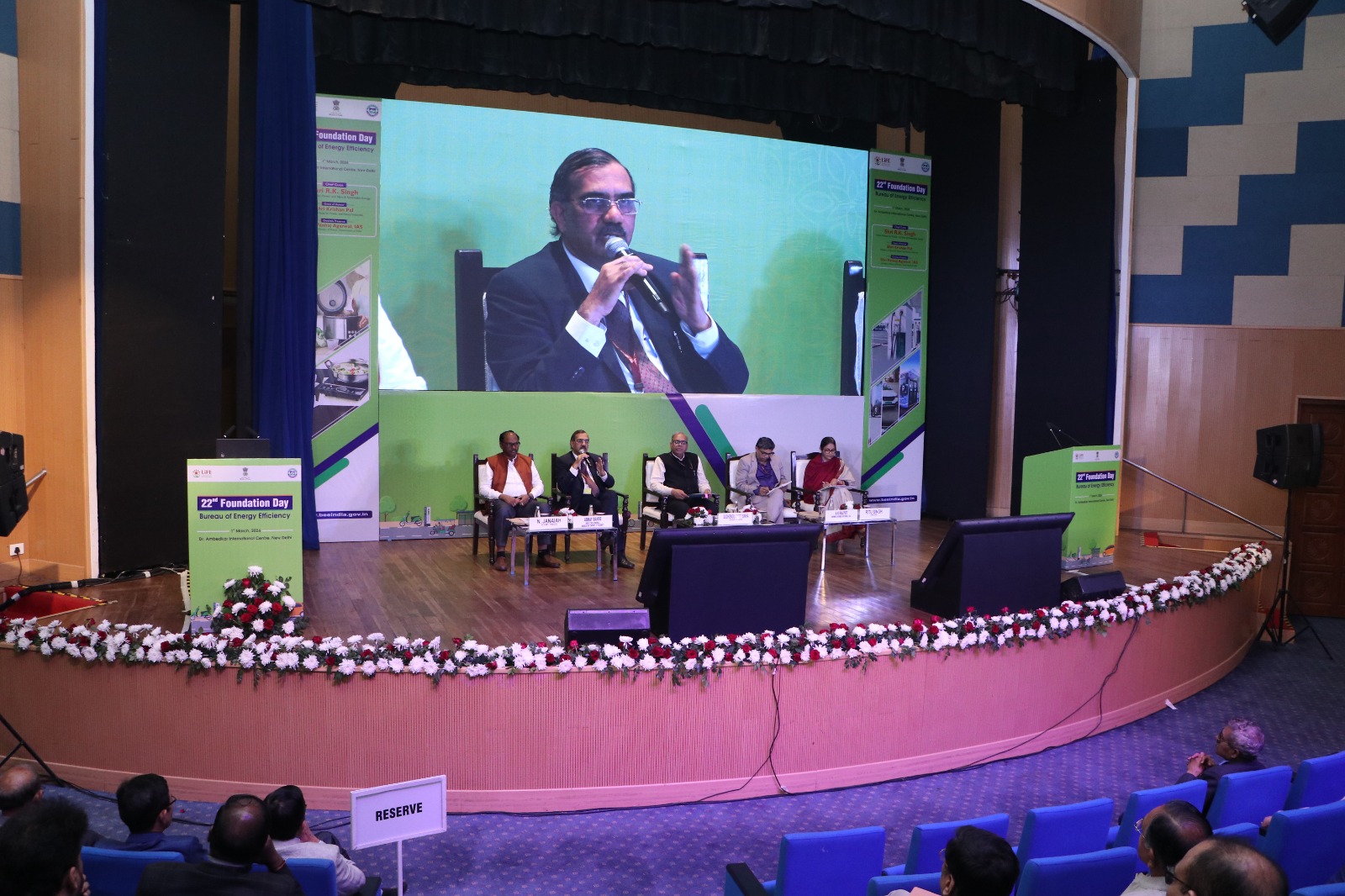
Highlighting Telangana's exemplary success in promoting e-mobility, Managing Director, Telangana State Renewable Energy Development Corporation, Shri N. Janaiah reported a remarkable 15%-16% growth in the EV segment in the state. He detailed the state government's initiatives, including subsidies for charging infrastructure, road tax exemptions, and the development of an e-mobility valley near Hyderabad. Telangana is actively involved in retrofitting ICE autos and operates over 100 electric buses, he added.
Micro-mobility and e-cycles
DGM, Energy Efficiency Services Limited, Dr. Ritu Singh passionately emphasized the role of micro-mobility, particularly electric bicycles, in both urban and rural areas. Advocating for policy measures which support e-cycles, she called for the design of conducive policies to boost demand. Recognizing the affordability of e-bicycles, Dr. Singh urged central and state agencies to foster policies encouraging their adoption.
“Affordability, policy support and standardization important”
Addressing the pivotal role of electricity as the fuel for e-mobility, Member (Power System), Central Electricity Authority, Shri Ashok Kumar Rajput stressed the need for affordability and policy support. He highlighted the importance of standardization to ensure quality and safety of e-mobility products. Advocating for a strategic approach to resource planning, he suggested maintaining openness to alternative technologies, such as hydrogen applications in heavy-duty vehicles.
In a collective conclusion, the panellists underscored the need for collaborative efforts, supportive policies, and strategic planning to successfully transition India towards electric mobility.
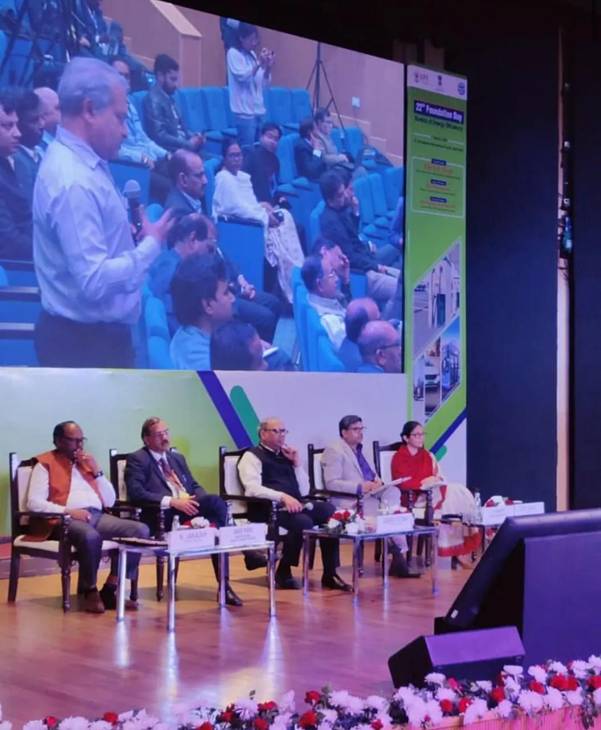
The panel discussion can be watched here.
Accelerating Decarbonisation through the Indian Carbon Market
The other panel discussion held was on accelerating decarbonisation through Indian Carbon Market. Chaired by Former Special Secretary of Ministry of Environment, Forest and Climate Change, Government of India, Shri R. R. Rashmi, the session provided crucial insights into the current state of the Indian carbon market, highlighting ongoing negotiations regarding Article 6.4 under the Paris Agreement.
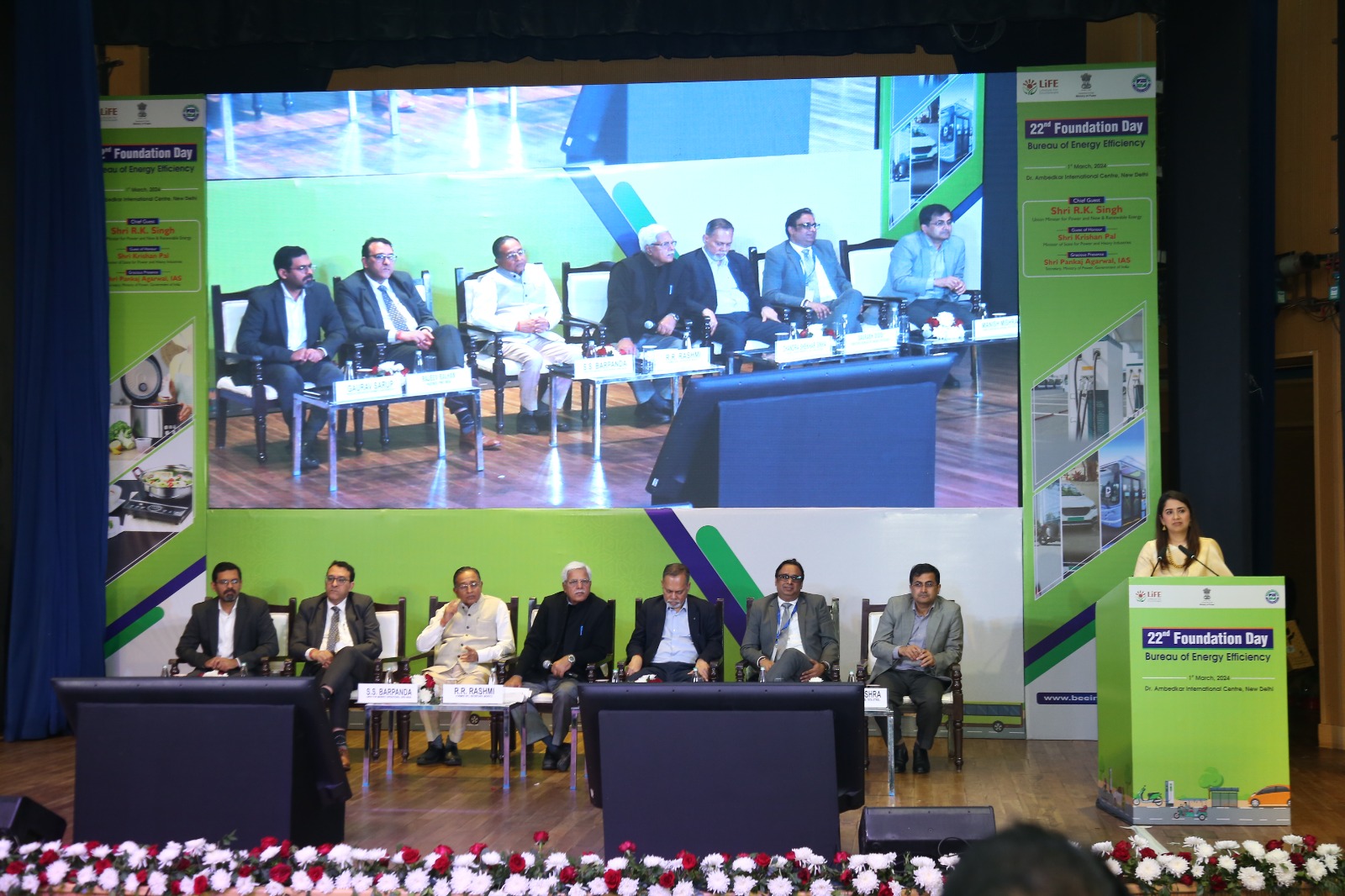
Director (Market Operation), Grid Controller of India (GCI), Shri S. S. Barpanda emphasized the pivotal role of carbon market registry in ensuring market transparency. Detailing GCI's contributions, he highlighted the registry's crucial role as a pillar for a successful market mechanism.
“Indian Carbon Market can have a transformative impact on climate action”
Director, BEE, Shri Saurabh Diddi explained the framework behind the Indian Carbon Market (ICM) and proposed a structure for the compliance and offset mechanisms. Stressing the ICM's potential in achieving Net Zero goals for industries and corporates, he underlined the transformative impact the carbon market can have on climate action.
“A robust compliance market would fuel demand for voluntary carbon credits”
Global Lead for Carbon Markets and Finance, Climate Finance and Economics, The World Bank, Shri Chandrashekar Sinha shed light on the Bank's support to the government on the carbon market. Emphasizing interoperability between compliance and offset markets, he asserted that a robust compliance market would create demand for voluntary carbon credits. He commended India's pioneering role in developing a unique mechanism, setting an example for other developing nations.
Shri Manish Mishra of Tata Steel and Shri Gaurav Sarup of Vedanta Resources highlighted the importance of the carbon market in decarbonization efforts for the industry sectors.
Shri Rajeev Ralhan of PwC underscored the role of emerging technologies like blockchain and IoT in achieving transparency and accountability in the Indian Carbon Market.
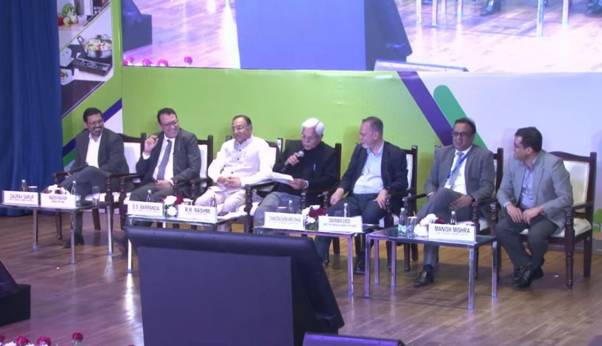
The discussion can be watched here.
Both technical sessions were enriched with engaging Q&A sessions, fostering a dynamic exchange of ideas.
The Bureau of Energy Efficiency remains steadfast in its commitment to fostering collaboration, supporting policies, and undertaking strategic planning for a successful transition to sustainable energy practices in India.
Also read:
22nd Foundation Day of Bureau of Energy Efficiency Celebrated; Union Power and New & Renewable Energy Minister commends BEE for its innovative and world-leading programmes
***
PIB DELHI | Dheep Joy Mampilly
(रिलीज़ आईडी: 2010909)
आगंतुक पटल : 3499